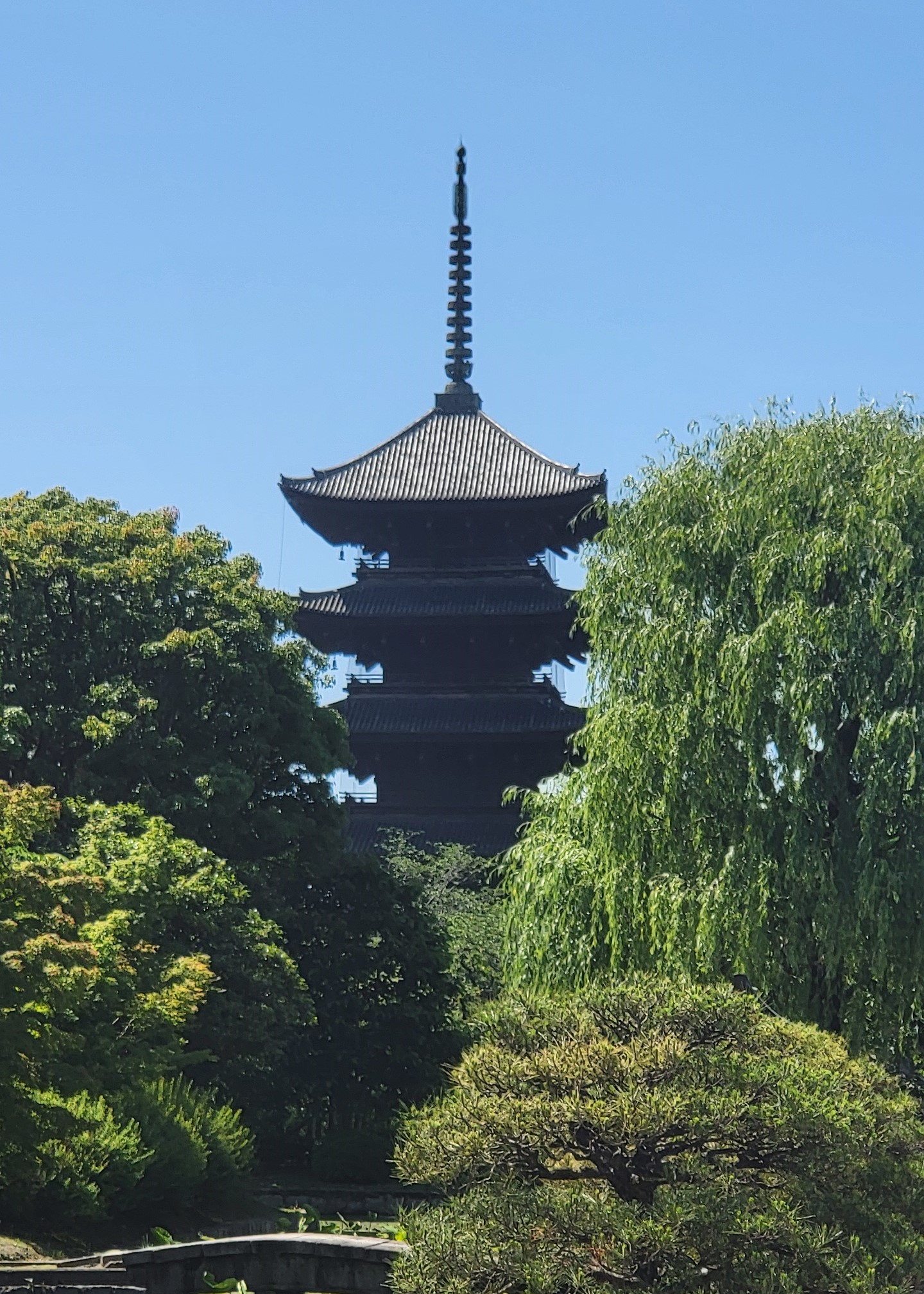As my time in Japan draws to a close, I find myself reflecting on the myriad lessons I’ve learned about the Japanese people and their culture. My recent week in Kyoto, in particular, was a treasure trove of experiences. I had the privilege of working with sales leaders and their teams on a strategic planning and creative problem-solving workshop. Also, I had the chance to explore the city as a tourist, guided by locals who unveiled the true culture behind the mask. My journey in Japan has been a revelation, unearthing the captivating and challenging facets of its culture.
Just four weeks ago, I found myself in Mexico, a country with a cultural dynamic that couldn’t be more different from Japan’s. Mexican culture’s vibrant and spontaneous nature stands in stark contrast to the reserved and structured Japanese way of life. In three weeks, I’ll be off to Malaysia, which is yet another unique cultural environment. Each country offers its own distinct experiences and insights, but this week in Japan has truly shone a light on some of the most intriguing aspects of Japanese culture.
The Art of Politeness
One of the most striking aspects of Japanese culture is the gentle politeness that permeates every interaction. Whether it’s a simple greeting, a transaction at a store, or a formal business meeting, the level of respect and courtesy is remarkable. This politeness is not merely a social formality but a deeply ingrained value that guides behaviour. In Mexico, interactions are often more exuberant and informal, with an emphasis on personal relationships and warmth. In Japan, however, politeness is seen as a way to maintain harmony and show respect for others, and very quickly, it takes your heart, and you feel yourself bowing more, smiling more and wanting to help others. It’s amazing how simply genuinely being “nice” to others can raise your spirits and make you feel good. This is a lesson I want to embed in my life and will focus on as I return to the West.
The Importance of Tidiness
Another cultural lesson I’ve learned is the importance of leaving spaces tidy after use. In Japan, cleaning up after yourself is customary, whether in a meeting room, a public park, or a shared kitchen. This practice reflects a sense of responsibility and consideration for others who will use the space after you. It’s a simple but powerful way to contribute to a collective sense of order and cleanliness. In contrast, the Mexican approach to public and private spaces is often more relaxed, with less emphasis on meticulous tidiness. Again, this is something I was brought up to do as a child: pick up after myself. and I hope that I still do this., however,, the extent of the Japanese “omoiyari”, which very roughly translates to “consideration and caring for others”, extends beyond just “picking up” after yourself to considering others’ needs, something we could all remember.
Reading the Air
One concept that particularly fascinated me is “kuuki wo yomu,” which translates to “reading the air.” This refers to the Japanese ability to understand and respond to unspoken social cues. It’s an intuitive sense of what is appropriate in each situation, often without the need for explicit communication. In Western cultures, we sometimes struggle with this, relying more on direct verbal communication. My own studies into the world of nonverbal communication has opened my eyes to how much we communicate without words, and my workshops in Mexico and America always surprise people with what can be implied without speaking, so to see it ingrained in the culture in Japan has fascinated me. To the point that when I applaud individuals for their abilities, they look at me strangely, asking why I would not be able to do this. It seems strange that to us in the West, this is not a common skill.
Timekeeping and Discipline
However, Japanese culture is not without its challenges. The rigid timekeeping structure and discipline in the workplace can be both a strength and a source of stress. Punctuality is highly valued, and being even a few minutes late can be seen as disrespectful. This strict adherence to schedules can create a high-pressure environment, especially for those accustomed to more flexible working conditions. While this discipline ensures efficiency and reliability, it can also lead to a fear of making mistakes or deviating from the norm. In Mexico, time is often viewed more fluidly, with a greater emphasis on flexibility and adaptability.
Trust and Hospitality
Another cultural nuance is the initial hesitation to trust foreigners. Trust is often built in Japan through shared experiences, particularly over meals and drinks. This is why business negotiations and relationship-building usually take place in social settings like restaurants and izakayas. Once trust is established, the warmth and hospitality of the Japanese people shine through. This emphasis on personal connections may seem unfamiliar to those from cultures where business relationships are more transactional. On the other hand, Mexican culture places a high value on personal relationships and trust from the outset, making social interactions more immediate and warmer.
The Pressure of Perfection
One of the most challenging aspects of Japanese culture is the relentless pursuit of perfection. This can be seen in everything from the meticulous food presentation to the precise execution of work tasks. While this dedication to excellence is admirable, it can also create immense pressure. Perfectionism often leads to high levels of stress and anxiety, as there is little room for error. This is particularly evident in the workplace, where employees are expected to perform at their best consistently. This can be a daunting adjustment for someone coming from a more forgiving work environment.
Conformity and Individuality
Japanese society places a strong emphasis on conformity and group harmony. The concept of “wa,” or harmony, is central to social interactions and decision-making processes. While this fosters a sense of unity and collective responsibility, it can also stifle individuality and creativity. In a culture where standing out is often discouraged, individuals can struggle to express their unique ideas and perspectives. This can be particularly challenging for foreigners who are used to more individualistic cultures, where personal expression is valued and encouraged. In Mexico, individual expression and creativity are often celebrated, making for a more dynamic and spontaneous social atmosphere.
Navigating Hierarchies
The hierarchical nature of Japanese society can also be challenging to navigate. Respect for authority and seniority is deeply ingrained, influencing interactions in both social and professional settings. Understanding and adhering to these hierarchies requires a keen awareness of social norms and expectations. For example, junior employees are expected to defer to their seniors and follow their lead in the workplace. This can be difficult for those from cultures with flatter organisational structures, where collaboration and equal contribution are more common. Mexican workplaces often exhibit a mix of respect for authority and a more relaxed approach to hierarchy, allowing for greater flexibility in interactions.
Communication Barriers
Despite the Japanese proficiency in “reading the air,” communication barriers can still pose significant challenges. The indirect communication style prevalent in Japan often relies on subtle hints and non-verbal cues. For foreigners who are more accustomed to direct communication, this can lead to misunderstandings and frustration. Additionally, the language barrier can be a significant obstacle. While many Japanese people are learning English, the language proficiency varies, and navigating daily life without a good grasp of Japanese can be challenging. In Mexico, communication tends to be more straightforward and expressive, making it easier for foreigners to engage.
Work-Life Balance
The concept of work-life balance in Japan can be particularly challenging. The culture of long working hours and the expectation to prioritise work above personal life is prevalent. This dedication to work, known as “karoshi,” or death from overwork, is a serious issue in Japan. Adapting to this can be difficult for foreigners accustomed to more balanced work-life cultures. Finding time for personal pursuits and relaxation often requires conscious effort and negotiation. Mexican culture generally places a higher value on personal life and leisure, providing a more balanced approach to work and family.
Social Isolation
Finally, the sense of social isolation can be a significant challenge for foreigners working in Japan. Despite the politeness and hospitality, integrating into Japanese social circles can be difficult. Building deep, meaningful relationships often takes time and effort, and the initial hesitation to trust outsiders can create feelings of isolation. This is compounded by the language barrier and cultural differences, making it hard to participate fully in the local community. In Mexico, the emphasis on social connections and community makes it easier for foreigners to integrate and feel welcome.
So, as I leave Japan, and especially Kyoto, it has given me an appreciation for the depth and complexity of Japanese culture. The lessons I will carry with me are gentle politeness, respect for shared spaces, and intuitive social awareness. At the same time, the rigid discipline and the unique process of building trust have broadened my understanding of cultural differences. The pressure of perfection, the emphasis on conformity, hierarchical social structures, communication barriers, work-life balance issues, and social isolation are all aspects that require adaptation and resilience.
As I move on to the next chapter of my life, with Mexico’s vibrant energy still fresh in my mind and the anticipation of Malaysia’s cultural tapestry ahead, I do so with a heart full of gratitude for the experiences and insights gained during my time in this beautiful country. My week in Kyoto, working with dedicated professionals and immersing myself in the culture, has been the perfect culmination of my Japanese journey. Farewell, Kyoto. Until we meet again.



